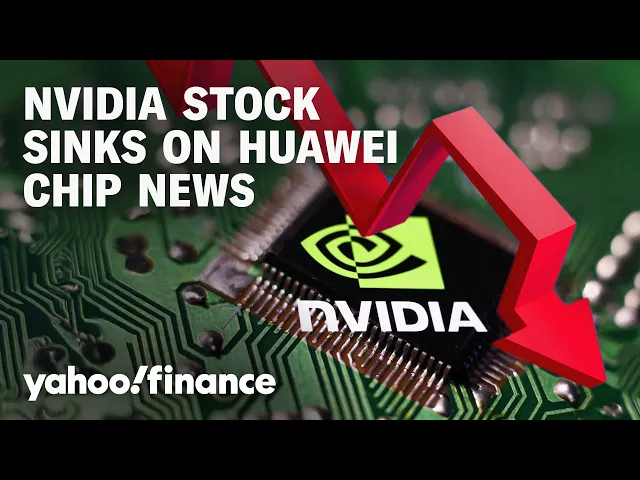Nvidia: US basically handed the Chinese AI market to Huawei, analyst says

US-China AI chip battle goes to Huawei
The recent geopolitical tensions between the United States and China have created significant ripples across the technology landscape, particularly in the artificial intelligence sector. According to Bernstein analyst Stacy Rasgon, the US government's decision to impose severe export controls on NVIDIA's AI chips to China has effectively "handed the Chinese AI market to Huawei." This development comes as Reuters reports that Huawei is ramping up production of its AI chips for mass shipment, causing NVIDIA's stock to sink further in an already challenging year.
Key Analysis Points
-
The Biden administration's export controls had already limited NVIDIA to selling only lower-performance AI chips (H20) to China, which were already outperformed by Huawei's offerings in some aspects.
-
The latest restrictions require NVIDIA to obtain licenses even for these lower-end chips, effectively blocking them from the Chinese AI market entirely.
-
Chinese domestic manufacturers like Huawei are being forced to innovate in ways they might not have pursued otherwise, potentially creating stronger long-term competition for US tech companies.
-
Despite NVIDIA being down approximately 30% year-to-date (significantly worse than the NASDAQ 100), Rasgon maintains that the fundamental AI demand story remains strong.
-
The China market was already becoming proportionally less significant for NVIDIA, representing their lowest percentage of total revenue in over ten years despite record absolute sales figures.
The Unintended Consequences of Tech Restrictions
The most insightful takeaway from Rasgon's analysis is her warning about the potential long-term consequences of these export restrictions. "The Chinese are not stupid," Rasgon notes, explaining that we're "forcing them to be creative in all senses of that word." While these policies might succeed in temporarily slowing China's AI advancement, they could ultimately accelerate domestic innovation in ways that create more formidable competitors in the long run.
This matters tremendously in the context of global technological competition. History has repeatedly shown that necessity drives innovation, and by cutting China off from American technology, we may be inadvertently creating the conditions for a more technologically self-sufficient China. Engineers often do their best work under constraints, and these export controls represent perhaps the ultimate constraint for Chinese tech companies.
Recent Videos
How To Earn MONEY With Images (No Bullsh*t)
Smart earnings from your image collection In today's digital economy, passive income streams have become increasingly accessible to creators with various skill sets. A recent YouTube video cuts through the hype to explore legitimate ways photographers, designers, and even casual smartphone users can monetize their image collections. The strategies outlined don't rely on unrealistic promises or complicated schemes—instead, they focus on established marketplaces with proven revenue potential for image creators. Key Points Stock photography platforms like Shutterstock, Adobe Stock, and Getty Images remain viable income sources when you understand their specific requirements and optimize your submissions accordingly. Specialized marketplaces focusing...
Oct 3, 2025New SHAPE SHIFTING AI Robot Is Freaking People Out
Liquid robots will change everything In the quiet labs of Carnegie Mellon University, scientists have created something that feels plucked from science fiction—a magnetic slime robot that can transform between liquid and solid states, slipping through tight spaces before reassembling on the other side. This technology, showcased in a recent YouTube video, represents a significant leap beyond traditional robotics into a realm where machines mimic not just animal movements, but their fundamental physical properties. While the internet might be buzzing with dystopian concerns about "shape-shifting terminators," the reality offers far more promising applications that could revolutionize medicine, rescue operations, and...
Oct 3, 2025How To Do Homeless AI Tiktok Trend (Tiktok Homeless AI Tutorial)
AI homeless trend raises ethical concerns In an era where social media trends evolve faster than we can comprehend them, TikTok's "homeless AI" trend has sparked both creative engagement and serious ethical questions. The trend, which involves using AI to transform ordinary photos into images depicting homelessness, has rapidly gained traction across the platform, with creators eagerly jumping on board to showcase their digital transformations. While the technical process is relatively straightforward, the implications of digitally "becoming homeless" for entertainment deserve careful consideration. The video tutorial provides a step-by-step guide on creating these AI-generated images, explaining how users can transform...
